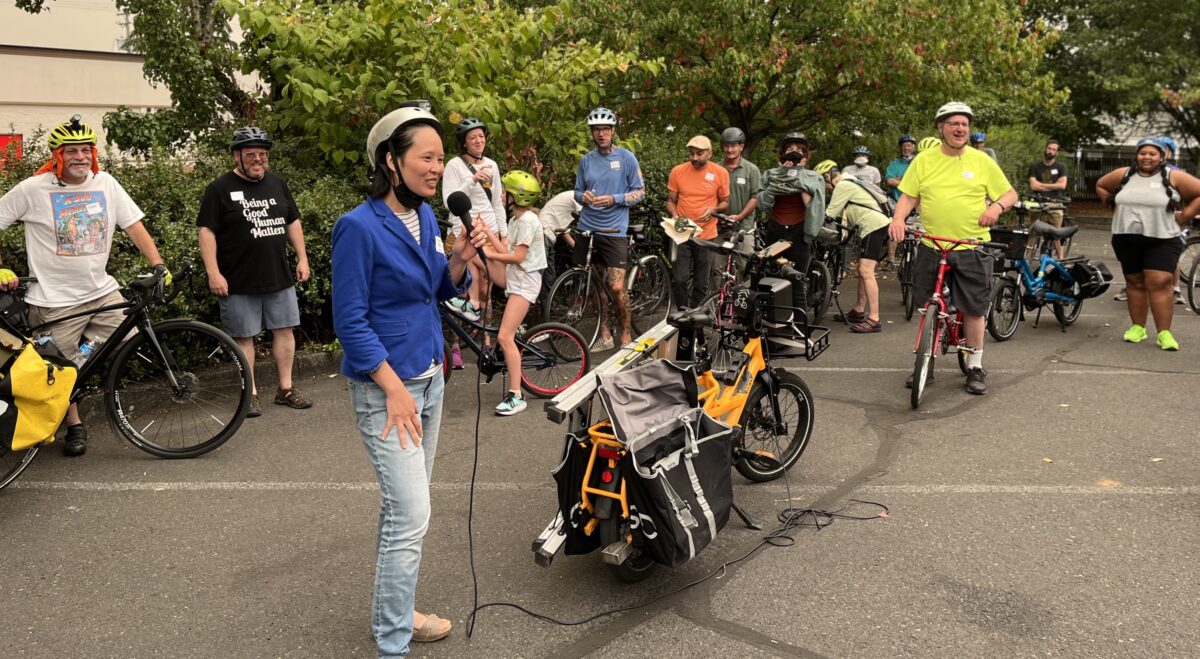
“We cannot continue to have children dodging cars to get to school. I cannot be mourning with another family again.”
– Khanh Pham , Oregon State House Rep
Our world was sepia-toned this weekend as smoke from nearby wildfires settled into the Willamette Valley. But the hazy air and wind didn’t deter dozens of people from showing up to the annual Bike Town Hall on Saturday morning. In fact, the visible representation of the climate emergency just made the event – which focused on achieving climate and transportation justice by transforming Portland’s streets – all the more important.
The Bike Town Hall was hosted by Oregon House Representatives Khanh Pham and Barbara Smith Warner and Senator Michael Dembrow as a way to discuss important issues related to Portland’s streets while biking through them. The event gave attendees a chance to see what’s happening on the ground and talk to legislators who can push for change from their desks in Salem.
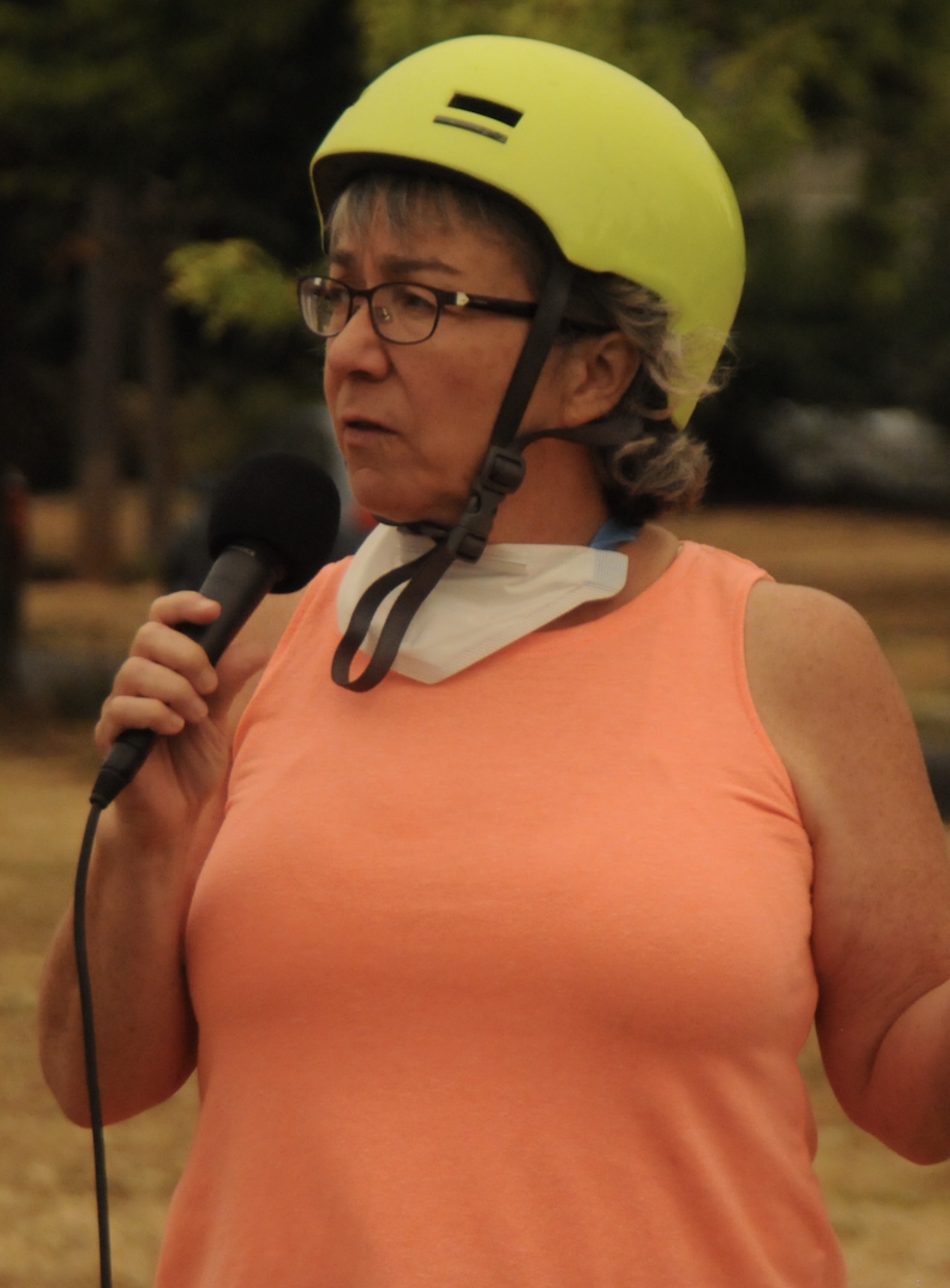
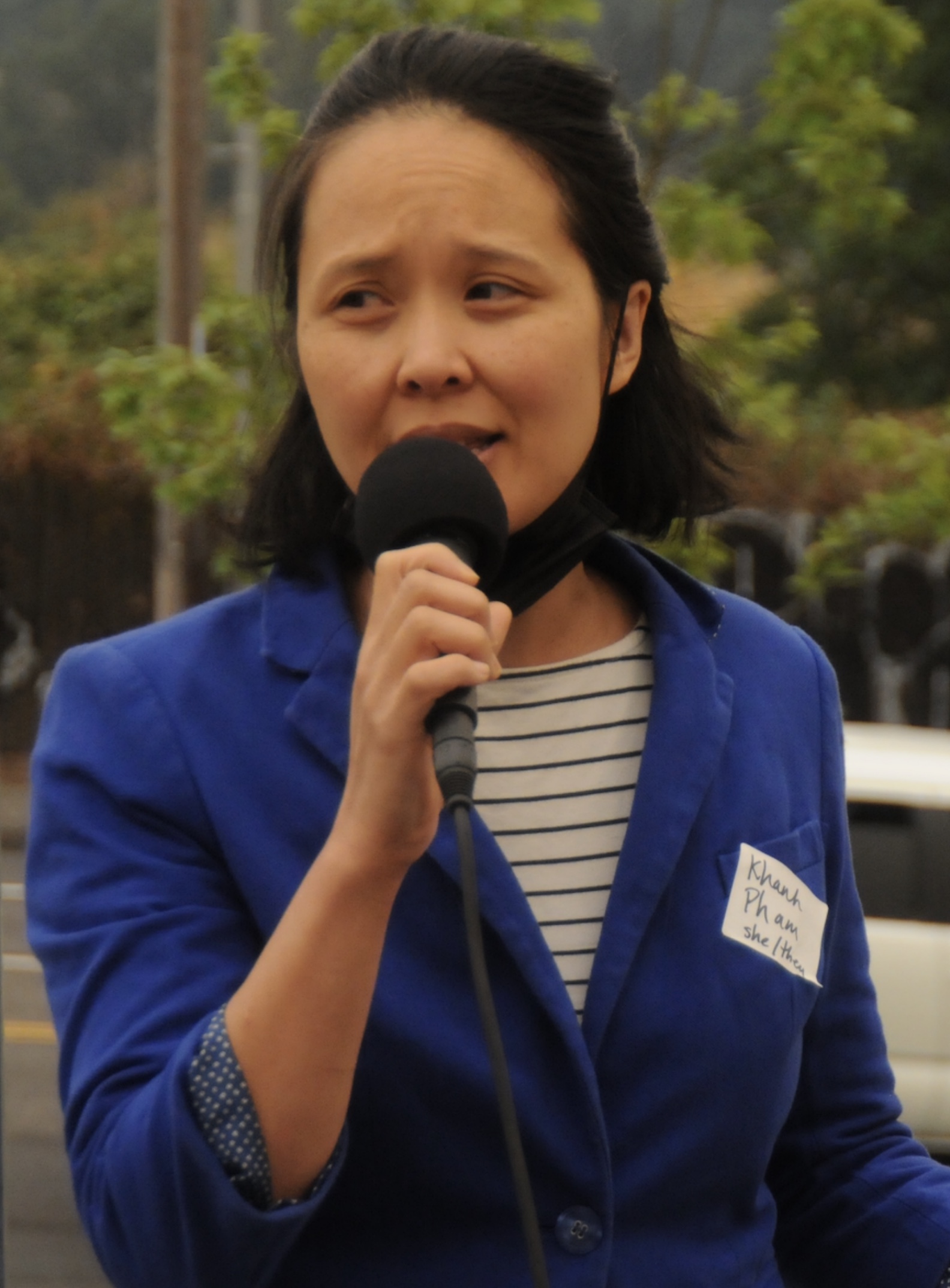


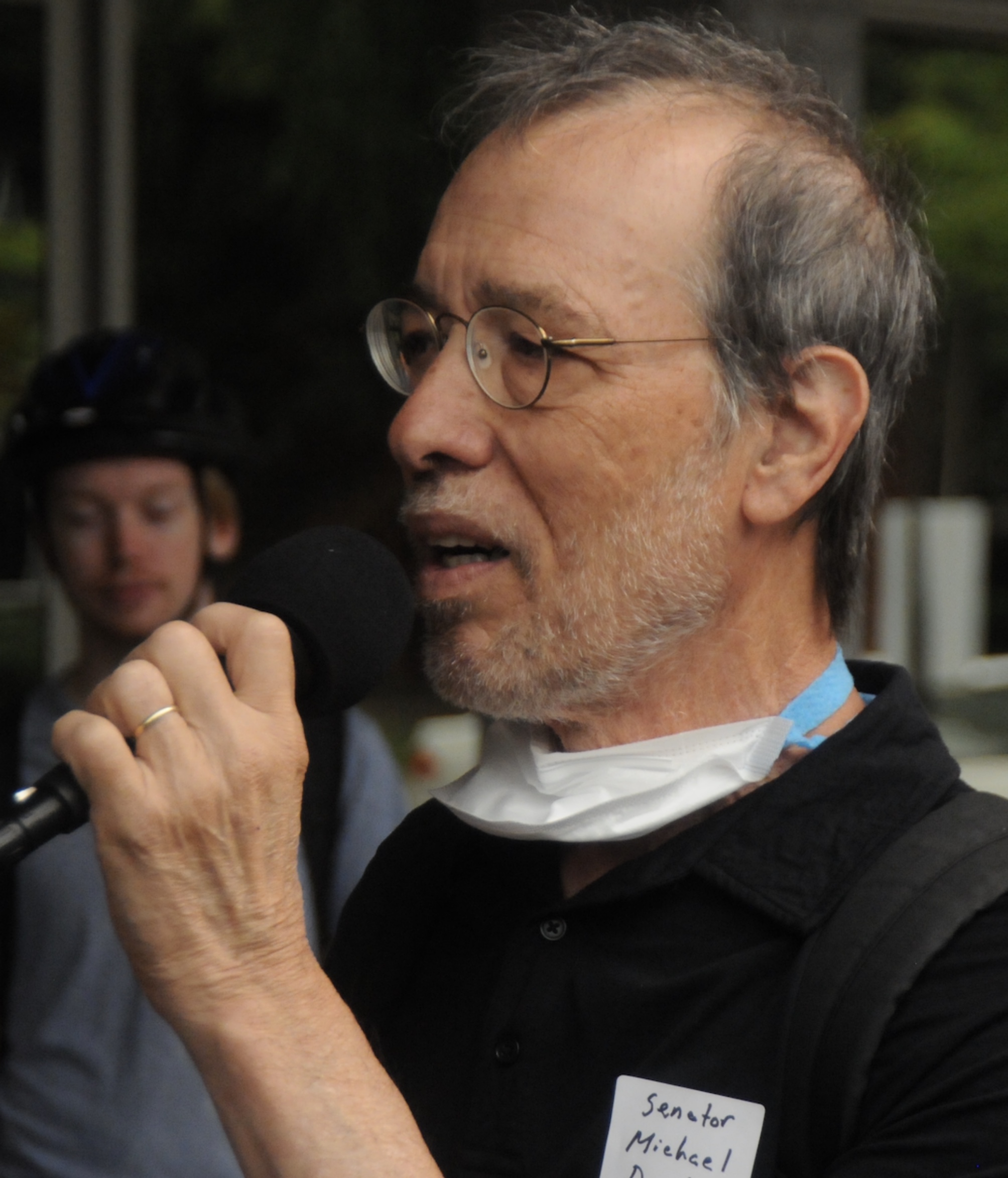
The ride started at Leodis V. McDaniel High School on 82nd Avenue, where state Rep Khanh Pham, who represents Oregon’s 46th district (which includes parts of east Portland), talked about why she cares so much about making streets safer for people walking and biking – especially in historically neglected, predominantly lower-income areas where many immigrant communities and people of color live.
With 82nd Ave recently entering city control, advocates hope the corridor (which is currently prominent on the Portland Bureau of Transportation’s map of high crash streets and intersections) can become a more comfortable place for everyone.
Gesturing to 82nd Ave behind her, Pham talked about her experience working as a community organizer in east Portland and seeing the tragic ramifications of traffic violence in the area.
“Every year we had to mourn at least one community member who died on 82nd or on Division St or on Powell Blvd. Each of these individuals had a whole family, a whole community, neighbors that were connected to them,” Pham said. “We cannot continue to have children dodging cars to get to school. I cannot be mourning with another family again.”
Ashton Simpson, current president of pedestrian advocacy nonprofit Oregon Walks and incoming Metro councilor, also talked about the urgent need to improve safety in east Portland.
“[82nd Ave] is the dividing line of our city. This is why we have ‘haves’ and ‘have nots’, and the ‘have nots’ live across the eastside,” Simpson said. “If we want to have racial equity in that space, we have to have true urgency in getting into those communities and providing the resources to transform their infrastructure.”
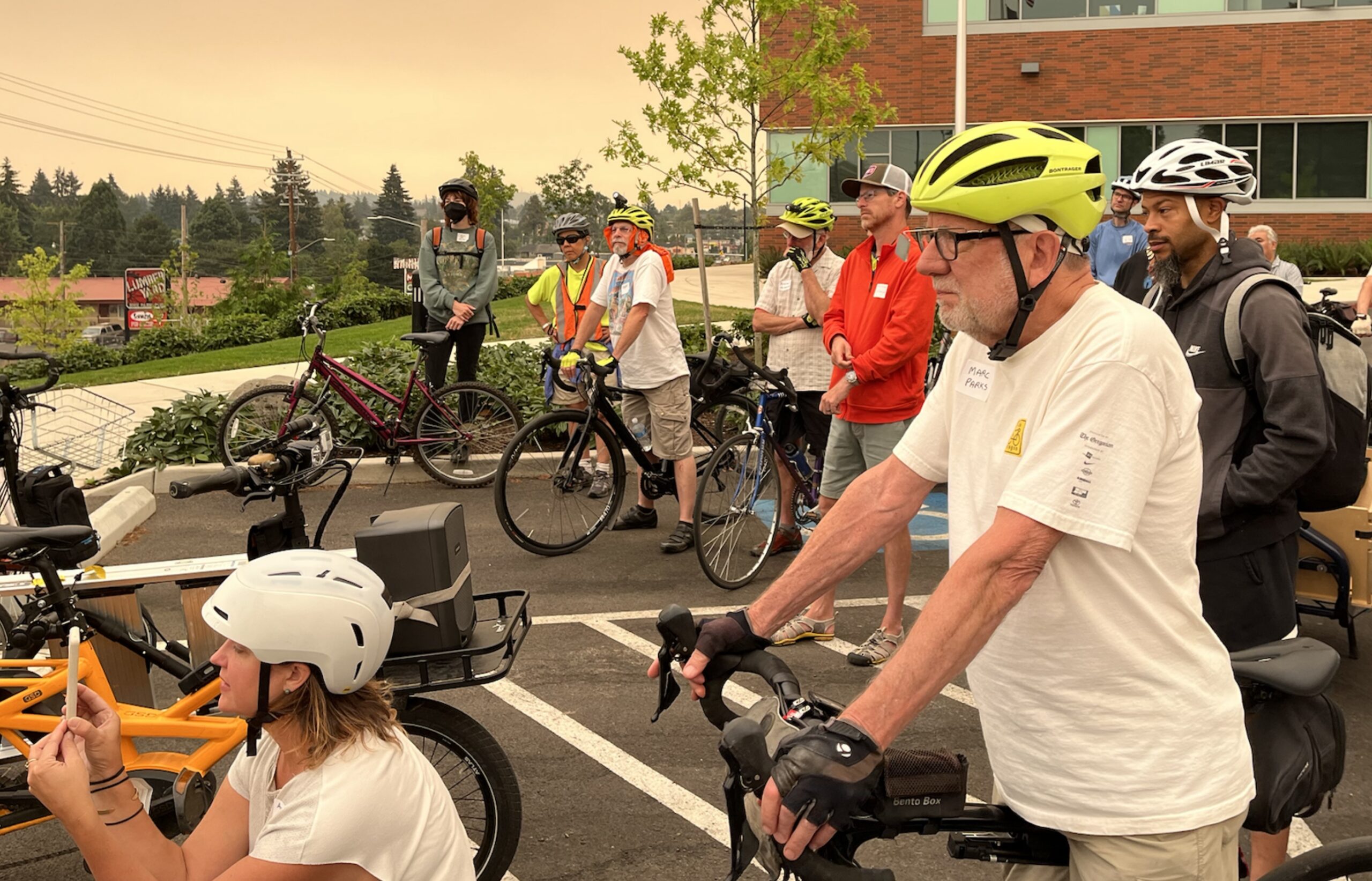
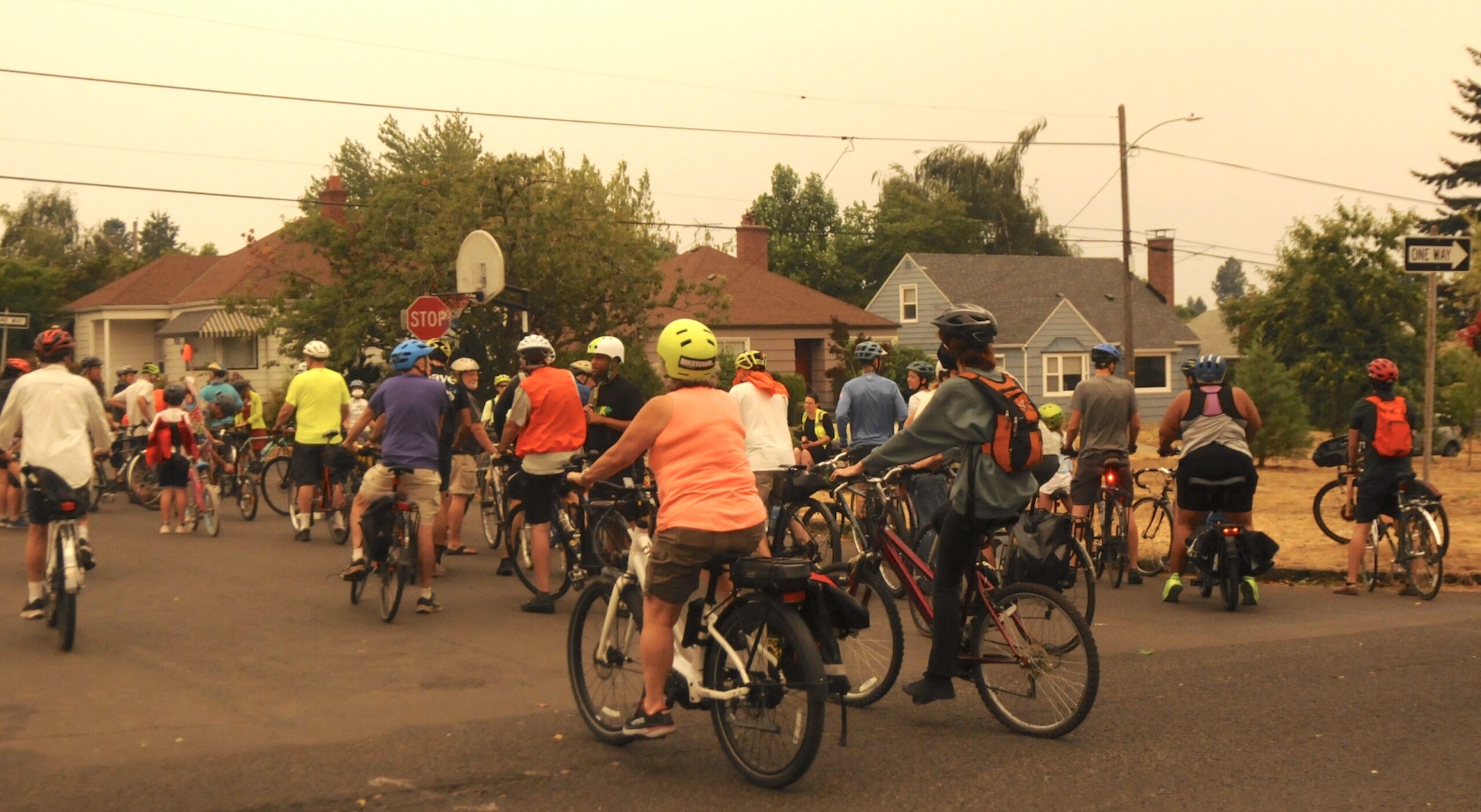
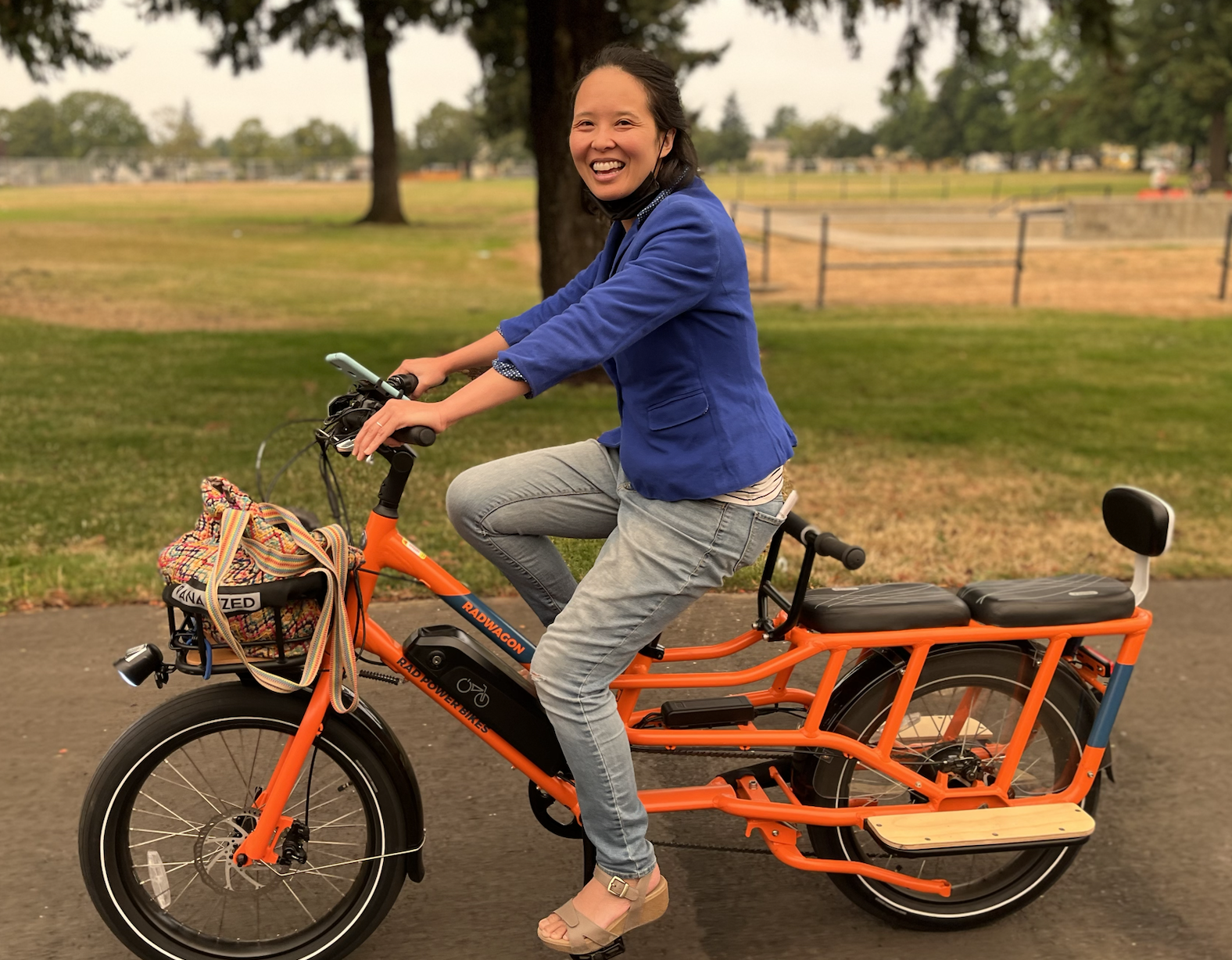
After discussing 82nd Ave, the group headed west to check out what’s going on in the Cully neighborhood in northeast Portland. The roster was jam-packed with speakers who touched on a wide range of topics affecting everyone who uses Portland’s streets. These speakers included Ernesto Fonseca of the Hacienda Community Development Corporation (CDC), who talked about about affordable housing projects and neighborhood revitalization.
We ended the ride at Cully Park, which sits on an area that used to be a landfill until climate justice organization Verde NW entered a partnership with the City of Portland to create a park and enrich the neighborhood, which was in vital need of green space.
“You’re standing on what used to be a landfill, and now is a beautiful park,” Verde Director Candace Avalos said. “It’s an example of the way that green infrastructure changes communities.”
Members of the Native American Youth and Family Center (NAYA) spoke about Cully Park’s Native Gathering Garden, which is a meeting space for members of local Indigenous communities to reconnect with their tribal first foods, many of which have been increasingly difficult to grow as their native lands change due to the climate crisis.
“This was a landfill before, so it’s pretty amazing to see that our first foods are here in an urban area,” NAYA’s Lucy Suppah said. “We have a lot of people who have migrated here and so they don’t necessarily know about the indigenous plants that grow here naturally. So this gives an opportunity for them to be able to access to these first foods, which is really important to continuing our traditions and our culture.”
It’s also important for elected leaders to get on bikes and experience road conditions first-hand. Seeing Rep. Pham and others riding bikes (especially on a day they might’ve preferred to stay inside with an air filter running) tells their constituents they have a personal stake in how safe Portland’s streets are and they’re willing to get their hands dirty to make them better.
“We know how to address traffic violence, right? We can fight for pedestrian crossings, slowing the speed limit, traffic calming. It’s just about the money,” Pham said early in the ride as we stood near 82nd Ave. “We need to make sure that our budgets are moral documents that are actually showing and reflecting what our priorities are. If we value safety, and human life, and racial equity, we need to be showing that with our dollars.”



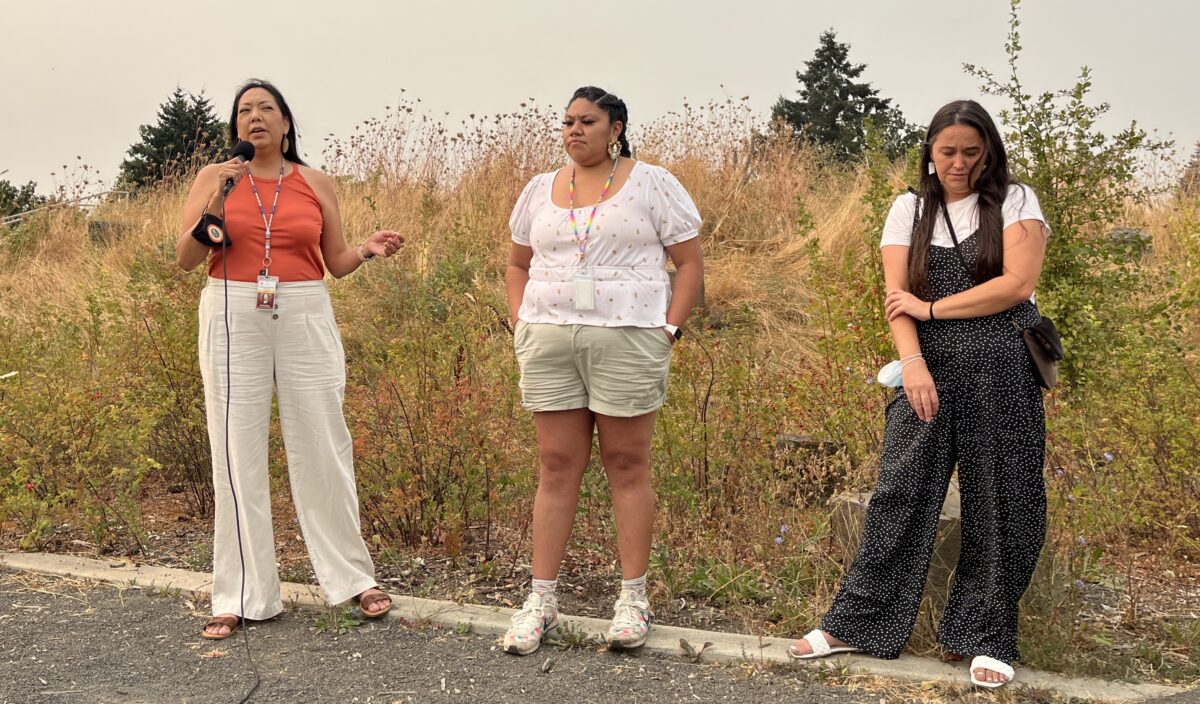

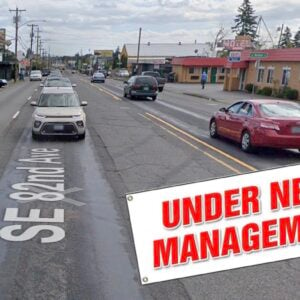
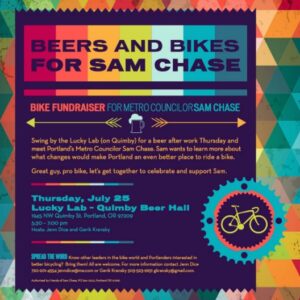
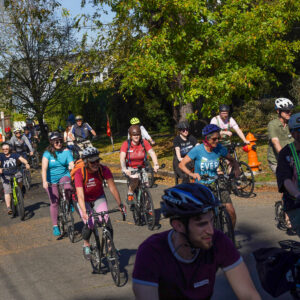
Thanks for reading.
BikePortland has served this community with independent community journalism since 2005. We rely on subscriptions from readers like you to survive. Your financial support is vital in keeping this valuable resource alive and well.
Please subscribe today to strengthen and expand our work.
I don’t know why, but I always find it depressing to see someone wear a helmet without protecting their forehead; it’s even worse when it is an elected or public official at a public event.
Perhaps it was loosened to allow her to speak freely while at the event – much like her face mask was?